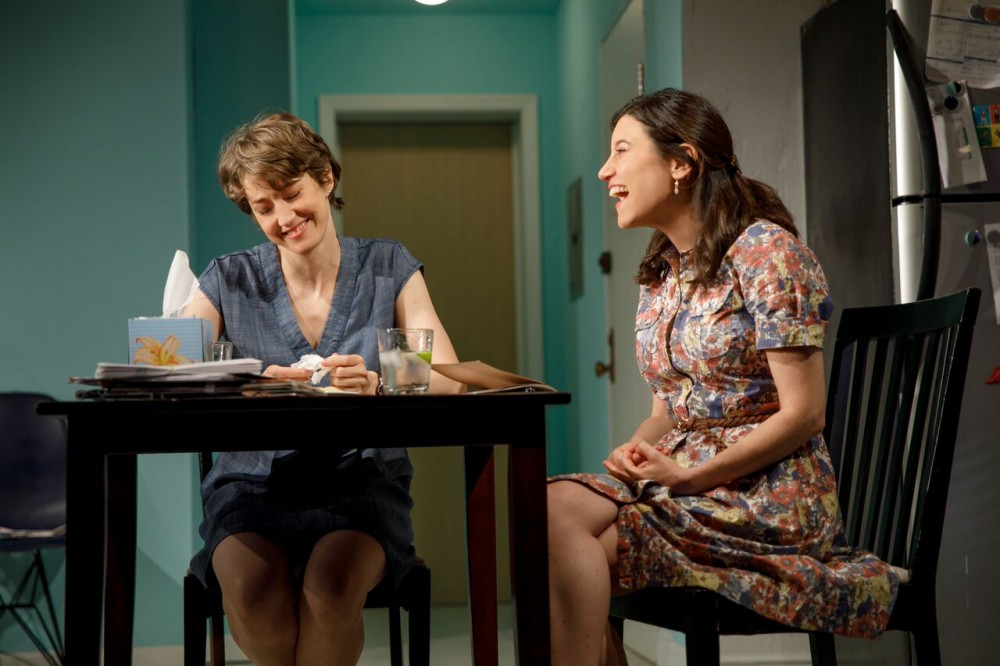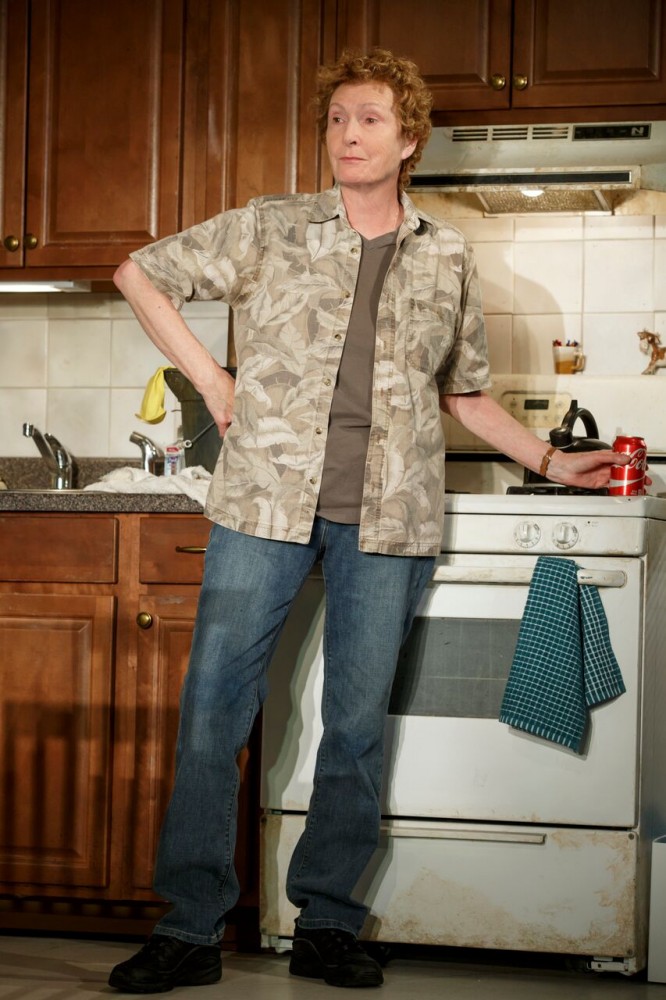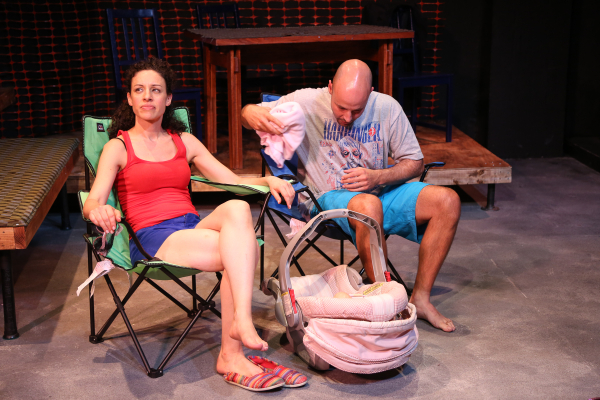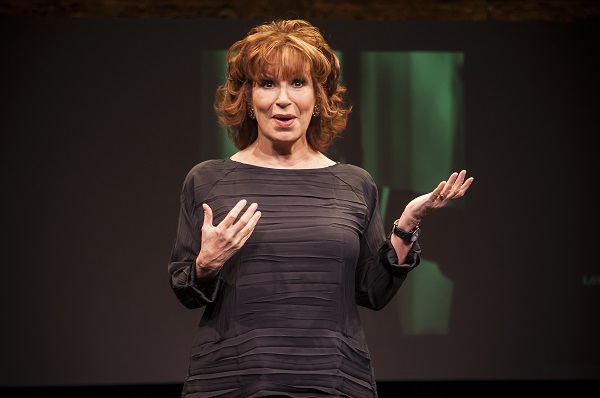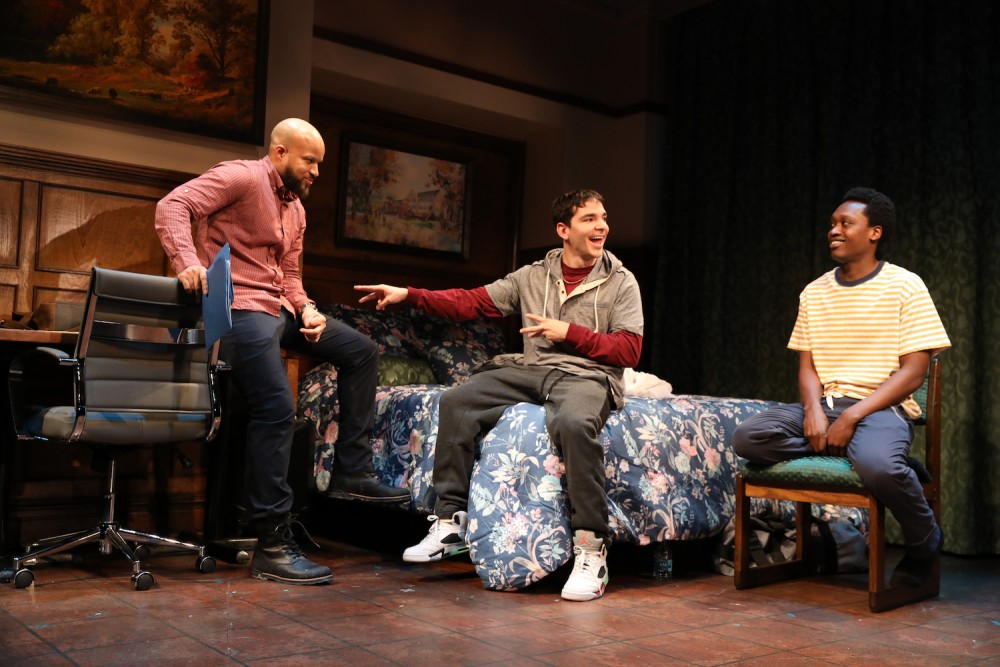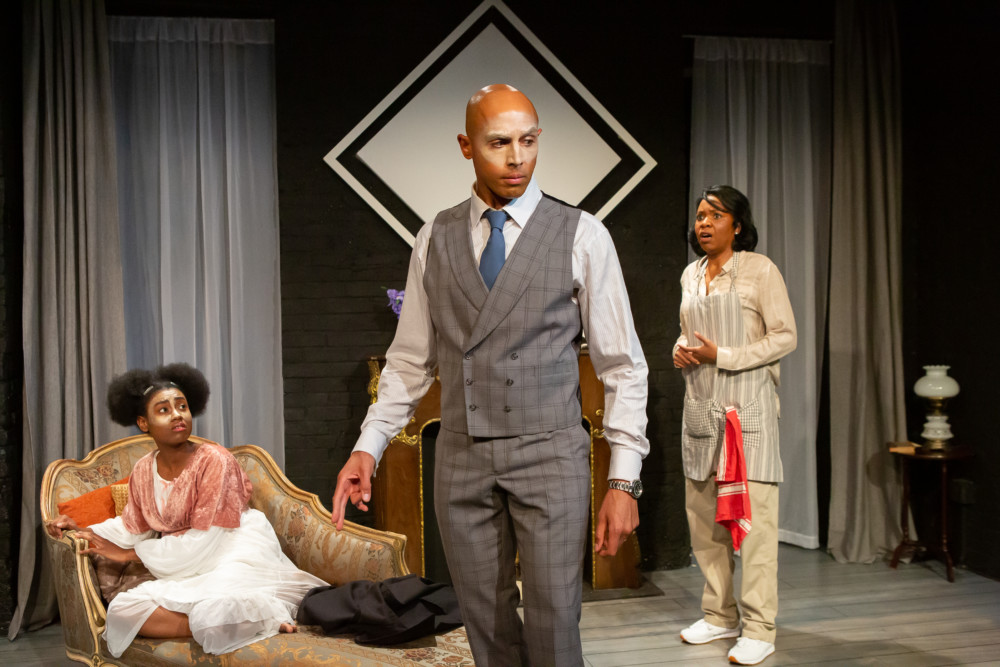by Michael Bracken
You have to give her credit. A luminous Carrie Coon strives fearlessly to make Mary Jane, Amy Herzog’s latest, at New York Theater Workshop, work as a drama. And she comes awfully close to succeeding. But she can’t quite manage to give the spirited, often funny, but ultimately directionless play a raison d’etre.
Emmy Award nominee (for “Fargo”) Coon is fabulous in the title role, as a single mother to Alex, an unseen 2 ½-year-old with an unnamed condition that requires constant care and attention. She navigates the stage with purpose, completely at home in Mary Jane’s Queens apartment. Always alert to the unwelcome beep of a vigilant monitor, she is unfazed when it sounds and moves directly from her living room or kitchen (side by side in Laura Jellinek’s utilitarian set) to her son in the bedroom.
It’s a performance whose hallmark is grace. There’s no particular reason why Mary Jane should be so graceful, but in Coon’s hands – and mind and heart – that’s what she is, and we have no choice but to observe and admire.
Roughly the first half of Mary Jane takes place in her one-bedroom apartment. We can’t see the bedroom, but we see the living room, with the fold-out couch where Mary Jane sleeps, and the kitchen. In the first scene, Mary Jane is speaking with Ruthie (Brenda Wehle), the super, who has plunger in hand as she futilely tries to unclog the sink.
Next, we meet Sherry (Liza Colón-Zayas), a nurse who is close to Mary Jane and protective of Alex. She later brings her teenage niece Amelia (Danaya Esperanza) around to meet them. Mary Jane is also visited by Brianne (Susan Pourfar), a new mother whose child has health issues similar to Alex’s.
The second half of the piece takes place in the hospital, after Alex has had an episode that merits constant observation. It’s really more of the same, except that Mary Jane has moved into the hospital to be with her son. There’s a wonderful scene with Pourfar doubling as Chaya, an Orthodox Jew with an edge that disguises her down-to-earth warmth. Her daughter, Adina, is another victim of perilously fragile health. She and Mary Jane talk about their children and the hospital and the roller coaster lives they’ve come to accept. Their two very different personalities play off each other in a way that’s both funny and touching.
Mary Jane is no tear-jerker. There’s no melodrama and we don’t feel manipulated. We’re not asked to feel sorry for anyone. But we are asked, at least indirectly, to admire the heroine. How can we say no? There she is, with the weight of the world upon her, completely unflappable, not quite perfect but always with a nice word, a pleasant thought, and, as played by Coon, movement like a gazelle.
Herzog’s opus is a character study of a vibrant flesh-and-blood character. But it doesn’t go anywhere new or (other than Mary Jane’s love for her child) deep. It’s a huge cut above a disease of the week TV movie in terms of its intelligence and its lack of sentimentality, but at its core it’s not all that different.
Anne Kauffman’s straightforward direction is in perfect sync with Herzog’s writing, with its knowing sense of humor and sharp dialogue. Japhy Weideman’s lighting is wonderfully versatile, and it too displays a sense of humor. Sometimes scenes are lit in stages as part of the transition, or white light may enter from the side for a self-consciously dramatic effect. Intimate encounters merit subtly toned-down lighting with pinpoint precision.
But with all due respect to Weideman, it’s Coon that lights up the stage. Mary Jane is almost too good to be true, but, thanks to Coon, we accept her without question.
Photos: Joan Marcus
Through October 29, 2017, at the New York Theatre Workshop (79 E. 4th Street). www.NYTW.org . 90 minutes with no intermission.


